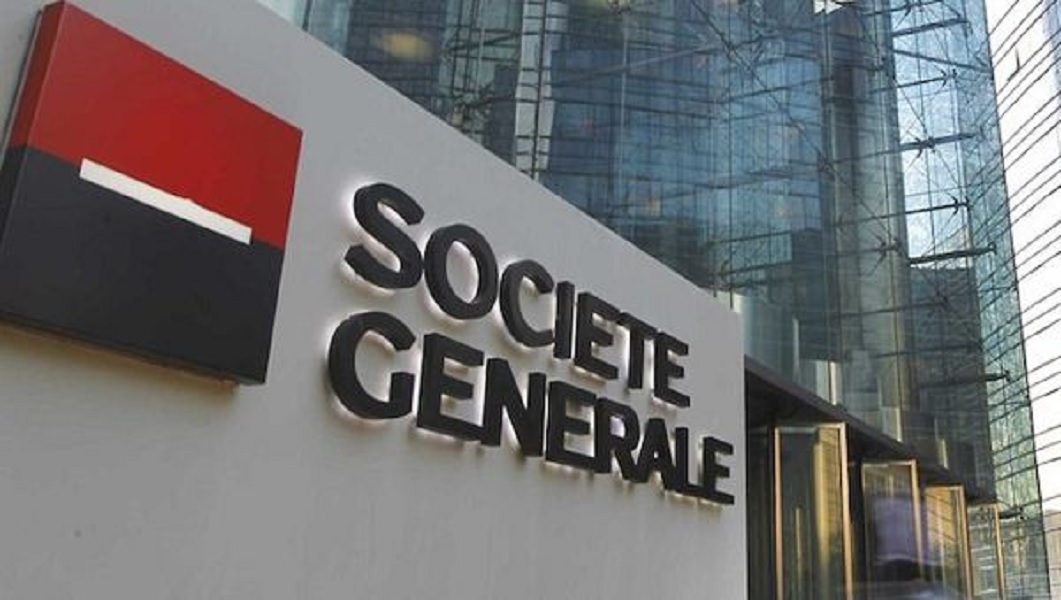The Governor of the Bank of Ghana (BoG) Dr. Ernest Addison has revealed that the Central bank will demand for a list of all persons and institutions interested in acquiring any shares of Soceite General (SG) Bank Ghana.
Earlier reports indicated that the SG Group in France which holds 60.22% of SG Ghana has initiated a strategic move to sell its shares and exit the country.
Responding to questions on the issue at a press briefing to announce the policy rate, Dr. Addison said the Bank of Ghana has already notified SG Bank through its subsidiary in Cote D’Ivoire to furnish his office with all of its intended plans of sale in the future.
“I have had discussions with their office in Cote D’Ivoire and I have complained that we don’t want to be surprised. We are hearing things but we want to see the long list of those that are interested in acquiring their shares. I have expressed those concerns to their office in the Côte d’Ivoire. Hopefully, we will hear something from them soon,” he said.
He disclosed that the Bank of Ghana did not officially receive any information from SG, hence the decision to be proactive in contacting the bank.
“We have not officially received any information on that from SG. Both from their group or office from Accra. We want to see the long list of those that are interested in acquiring their shares, so have expressed those concerns. Hopefully we will share something from the group very soon”, he reiterated.
Background
The Managing Director of SG Ghana, Hakim Ouzzani, had earlier declared that the information about the bank exiting the Ghanaian market is not coming from the Group Head Office in France.
He made the statement during the Annual General Meeting of the Bank at its head office in Accra. Mr. Ouzzani refused to answer any more question after making the declaration.
Fitch Ratings’ report
Fitch Ratings earlier projected that the exit of French bank, Societe Generale (SG) from Africa, will give pan-African banks significant space to grow, either organically or through mergers and acquisitions.
“This should stimulate competition and benefit local banking sectors despite some short-term challenges”, Fitch said.
Already, there are reports SG is moving out of Ghana due to issues of profitability and high regulatory demands in the financial sector by the regulator.
SG has announced the sale of Societe Generale Marocaine de Banques (SGMB) and its subsidiaries to the Moroccan conglomerate Saham Group on 12 April. This follows several African disposals by French banks in recent years.
In the past six months SG has also agreed the sale of some other smaller African subsidiaries, and launched a strategic review to dispose of its 52.34% stake in Tunisia-based Union Internationale de Banques. BNP Paribas, BPCE and Credit Agricole’s African presence has also decreased over the last 10 years and is now very limited. We expect further divestments in the next 12-24 months, especially if valuations are attractive to the selling banks.
Divested subsidiaries face several challenges as their parents’ risk appetite has been lower than local competitors’. In addition, the exit of highly rated foreign shareholders is often credit negative for subsidiaries. We placed SGMB’s National Ratings on Rating Watch Negative, signalling that upon completion of the sale we will no longer factor in potential support from SG, which is likely to result in a downgrade.
A lower rating, or the exit of a foreign shareholder, could make access to the global financial system and correspondent banks more difficult, potentially disrupting cross-border remittances, payments and trade finance activities. In many sub-Saharan markets where FX liquidity is tight, it could also make access to hard currencies more difficult without the FX liquidity lines that French parent banks typically provide to support trade finance activities. However, these are short-term hurdles and banks typically have good access to funding from development finance institutions.
“We see significant opportunities for local and regional banks in Africa despite the challenges. Some banking groups with pan-African ambitions should eventually gain enough scale to compete with long-established institutions. Vista Group agreed to acquire several subsidiaries (including some of SG’s) in sub-Saharan Africa in 2023, which would increase its African presence to 16 countries”.
Coris Bank, present in 11 African countries, finalised the acquisition of SG’s Chadian subsidiary in January, and is awaiting regulatory approval to acquire SG’s Mauritanian subsidiary. Vista and Coris are emerging as credible competitors for the well-established South African, Nigerian and Moroccan pan-African banking groups.
Increasing competition among pan-African banking groups should boost credit growth. French-owned African subsidiaries are often unable to target certain segments of the economy due to their parent bank’s conservative risk appetite, and they follow more stringent loan classification and provisioning policies than locally owned banks.
This can act as a drag on growth and profitability. Stricter capital management, with higher buffers over local minimum regulatory requirements, has also constrained subsidiaries’ lending. We expect credit growth to accelerate with the exit of French banks, albeit mainly in lower-risk segments, which will help preserve asset-quality metrics.
The French banks’ exit from African retail and commercial banking is slightly credit positive for them. They are refocusing on more mature retail banking markets in Europe and on activities such as insurance, leasing, and corporate and investment banking, where they can realise higher synergies. Reduced presence in Africa also aligns better with their conservative risk appetite and efforts to optimise risk-weighted assets under European banking supervision, which is tighter than the local supervision for their African peers. Increasing economic uncertainties and heightened geopolitical tensions in some African countries are also influencing their strategic reassessment.
Source: Myjoyonline

